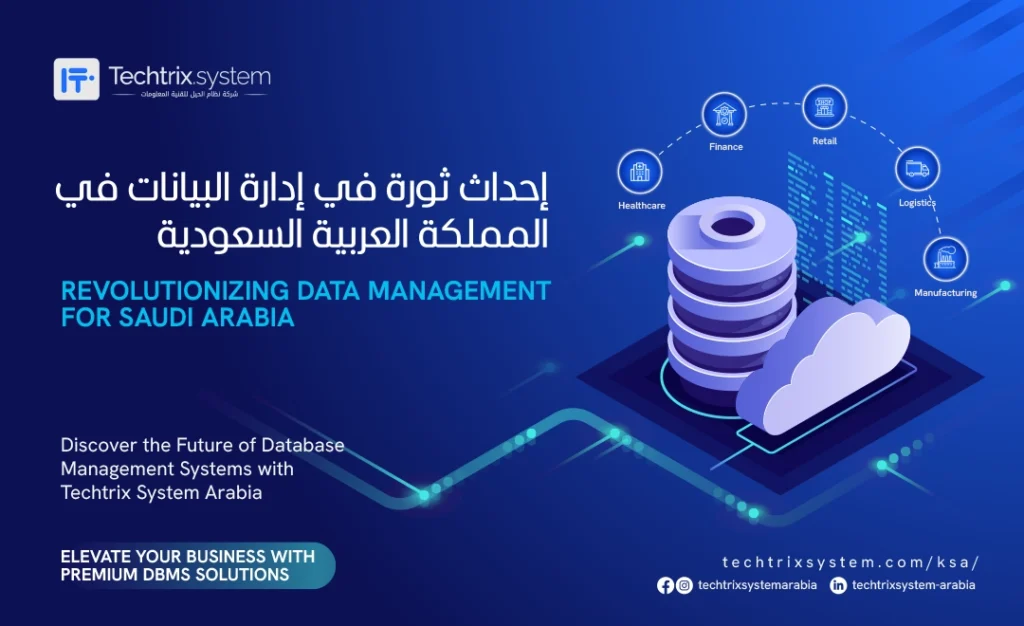Latest Trends in Product Engineering in Saudi Arabia for 2024

Reaching New Heights: Saudi Arabia’s Cloud Market Evolution
“Building a product from scratch is no different than building a bridge where every detail matters, and every flaw can lead to failure.”
In Product Engineering, the process of creating, designing, and developing a product requires meticulous attention, much like a carefully constructed bridge. Product Engineering encompasses everything from conceptualizing an idea to ensuring the product performs reliably in the market. This process combines technical expertise, creative design, and strategic planning to bring innovative products to life, meeting both customer needs and business goals. The importance of Product Engineering lies in its ability to provide businesses with a competitive edge. Product Engineering ensures that companies can develop high-quality, cost-effective, and reliable products while reducing time-to-market.

Exceptional Product Engineering in Saudi Arabia and its Growing Importance
In Saudi Arabia, Vision 2030 is driving a strategic shift toward economic diversification, and Product Engineering plays a major role in this transformation. The Kingdom’s ambition to reduce its reliance on oil and focus on sectors such as manufacturing, energy, and technology has intensified the need for advanced Product Engineering practices. As industries evolve to meet global standards, embracing Product Engineering methods has become essential for staying competitive. Industries like aerospace, military, and telecommunications are increasingly relying on advanced engineering solutions that integrate AI, IoT, and smart manufacturing. This transition is crucial as companies in the Kingdom aim to produce quality and technologically advanced products that can compete in the global market. Moreover, Saudi Arabia’s commitment to sustainable development has increased the demand for eco-friendly and energy-efficient products. This aligns with the global trend of integrating sustainability into product engineering, which is essential for meeting environmental regulations and consumer expectations. As the Kingdom pushes for smarter cities and more sustainable industries, Product Engineering becomes a critical component in driving innovation, reducing waste, and enhancing overall efficiency.
Latest Trends in Product Engineering for 2024 Aligning with Kingdom’s Goals:
The following five trends have gained significant attraction in Saudi Arabia. Companies are keenly analyzing these 2024 trends to stay competitive and achieve sustainable growth. Understanding and adopting these trends has become essential for any business aiming to thrive in the Kingdom’s industrial landscape.
1- The Role of AI and Machine Learning in Product Engineering in KSA

In the current situation of Saudi Arabia, AI and machine learning (ML) have become the backbone of product engineering, driving efficiency and innovation. The Kingdom’s National Program for Information Technology Development (NPITD) announced an initiative to train 1,000 skilled engineers in AI and machine learning and boost its information technology (IT) sector (Source). These technologies are reshaping the way products are designed, developed, and delivered. Predictive analytics, powered by AI, can foresee a product’s potential flaws even before it’s built. This capability is transforming industries in the Kingdom, helping businesses stay ahead of the curve by ensuring superior product quality and reduced time-to-market.
One key example is how AI is used in optimizing manufacturing processes. By analyzing vast datasets in real-time, AI can identify inefficiencies in production lines and suggest immediate improvements. In Saudi Arabia’s tech and industrial sectors, companies are leveraging AI to design products according to market demands while minimizing waste and maximizing resource efficiency.
For instance, Automotive and manufacturing industries in the Kingdom are utilizing machine learning algorithms to predict maintenance needs, allowing for proactive measures and reducing downtime. This not only boosts operational efficiency but also aligns with Saudi Arabia’s Vision 2030 goals of integrating smart technologies and digital transformation across various sectors.
2- Impactful Sustainability and Green Engineering Shaping Product Design in KSA
Sustainability and Green Engineering have become more than just industry buzzwords; they are essential components of the country’s future. In a world increasingly concerned with environmental impact, Product Engineering is playing a vital role in ensuring that products are designed with minimal waste and maximum efficiency. Sustainability isn’t just a global demand; it’s a regional necessity, as Saudi Arabia aims to align itself with eco-friendly standards as mentioned in Vision 2030.
Green engineering focuses on designing products that are resource-efficient, environmentally friendly, and economically viable. This approach minimizes the negative environmental impact by using sustainable materials and processes, reducing waste, and ensuring the recycling of products. For example, sectors like construction and manufacturing in Saudi Arabia are increasingly turning to sustainable design principles, integrating green technologies such as energy-efficient materials and processes.
Nations lagging in sustainability measures are often subject to stricter regulations and find themselves outpaced by those embracing green engineering. In contrast, countries and companies that lead the charge in sustainable Product Engineering are not only viewed favorably but also gain a strategic advantage in international trade and partnerships. It is also to keep in mind that, in Saudi Arabia, sustainability isn’t just about reducing carbon footprints; it’s about future of the industries.
3- Integration of Transparent Blockchain for Secure Product Development in KSA

Blockchain is often misunderstood as fraud or just another tech trend, but it’s far from that. It is a modern technology that is proving to be essential in product development, especially for industries focused on transparency, security, and efficiency. In Saudi Arabia, where businesses are embracing digital transformation, blockchain is emerging as a game-changer in ensuring the integrity and traceability of product development processes.
So, what makes blockchain so crucial? Simply put, blockchain is a digital ledger that records transactions across multiple systems securely and transparently. In product engineering, this technology can track the entire lifecycle of a product, from raw material sourcing to the final delivery. This level of transparency builds trust between companies, suppliers, and consumers, something increasingly important in the Kingdom’s push towards more ethical and efficient business practices.
For example, blockchain is widely used in the supply chain and logistics sectors, including in industries like pharmaceuticals, automotive, and food production. By implementing blockchain, these industries can guarantee that every step in their process is authentic.
Nations and businesses that lag in adopting such transparent technologies risk falling behind in the eyes of global markets. With the Kingdom’s Vision 2030 promoting digitalization across all sectors, integrating blockchain in product development is no longer just an option.
4- Rapid Prototyping with 3D Printing and Additive Manufacturing in KSA
Gone are the days of endless design iterations and back-and-forth approvals that consume hours and frustrate teams. What used to take days can now be done within hours, dramatically speeding up the innovation process. With 3D printing and additive manufacturing, the future of Product Engineering is here, allowing companies to move from concept to prototype in a matter of minutes. Unlike traditional manufacturing, which often involves removing material to create parts, additive manufacturing builds products layer by layer. This approach not only saves time but also reduces waste, making it a more sustainable option. For instance, companies in the aerospace and automotive industries are using 3D printing to create complex parts that were once impossible or time-consuming to produce.
In Saudi Arabia’s industrial sectors, where rapid prototyping is a daily routine, 3D printing has modernized product engineering. Be it the development of customized components in the healthcare industry or creating intricate architectural models in construction, this technology ensures that products can be tested, refined, and finalized faster than ever before.
With Vision 2030’s focus on innovation and relying on technology, Saudi companies adopting 3D printing are not just optimizing their operations; they’re setting the standard for the future. By eliminating repetitive manual tasks and enabling rapid approvals, 3D printing and additive manufacturing have made it possible to turn creative ideas into tangible products at lightning speed.
5- Digital Twins Transforming Product Development in KSA with Real-Time Insights
Isn’t it cool to have a virtual replica of a physical product that mirrors its real counterpart in every way? The name “Digital Twin” perfectly captures its essence, implying that this is a digital copy that behaves just like the physical product, allowing businesses to simulate, analyze, and optimize designs before even building them.
In the context of Product Engineering, Digital Twins are transforming how products are developed. By creating a virtual model, engineers can test scenarios, predict failures, and refine designs without the time and cost associated with physical prototypes. This technology has become crucial in sectors like manufacturing, oil and gas, and smart cities, where real-time data and predictive analytics can save both time and resources.
In Saudi Arabia, Digital Twins are playing a significant role, particularly in large-scale projects like NEOM and other smart city initiatives. By using this technology, planners and engineers can optimize infrastructure, monitor performance, and make data-driven decisions that align with the Kingdom’s Vision 2030 goals. For example, in the energy sector, Digital Twins are being used to monitor and optimize the performance of oil rigs and refineries, ensuring efficiency while minimizing risks.
Powerful IoT-Enabled Products Transforming Saudi Industries

IoT-enabled products are advancing industries across Saudi Arabia by connecting devices, systems, and data in ways that enhance efficiency and decision-making. From smart cities to advanced manufacturing, these technologies are helping businesses align with Vision 2030’s goals for digital innovation and sustainability.
- IoT-enabled products are transforming Saudi Industries by connecting devices and systems, allowing real-time data collection, monitoring, and analysis, leading to smarter decision-making and increased operational efficiency.
- In the oil and gas sector, IoT sensors are used to monitor equipment performance and predict maintenance needs, reducing downtime and improving productivity.
- Smart cities like NEOM leverage IoT technologies for traffic management, energy efficiency, and smart infrastructure.
- IoT in manufacturing is optimizing production lines by enabling automated systems to adjust operations based on live data, improving both speed and accuracy.
- The Retail sector in Saudi Arabia is adopting IoT-enabled inventory management solutions, which help track stock levels and streamline supply chain processes.
- IoT also plays a crucial role in healthcare, where smart devices monitor patient health, allowing for better preventive care and faster emergency responses.
- By integrating IoT technologies, Saudi businesses are enhancing customer experiences, reducing operational costs.
Vision 2030 Driving Strategic Product Engineering Innovations in Saudi Arabia
Saudi Arabia’s Vision 2030 is accelerating Product Engineering innovations across the Kingdom by prioritizing technological advancement, digital transformation, cybersecurity, cloud computing, and sustainability. The strategic goals outlined in Vision 2030 emphasize reducing dependency on oil, which drives investments in new industries such as technology, manufacturing, and smart cities. Major cities like Riyadh, Jeddah, and Dammam are becoming hubs for innovation, with companies like Aramco, SABIC, Techtrix System and STC leading the way in offering Product Engineering services aligned with government directives.
These companies are integrating advanced Product Engineering techniques in various sectors, from energy and infrastructure to telecommunications, ensuring that their products meet global standards and contribute to the Kingdom’s strategic goals. This focused push toward innovation is not only transforming local industries but also placing Saudi Arabia at the forefront of technological progress in the region.
FAQs
DBMS ensures that businesses maintain accurate records, track changes, and adhere to regulatory requirements.
They incorporate AI to automate data analysis, predict trends, optimize query performance, and enhance decision-making processes.
The types include relational DBMS (RDBMS), NoSQL DBMS, object-oriented DBMS, and hierarchical DBMS.
Data security, backup and recovery options, performance optimization, and ease of integration with other systems.
DBMS should offer encryption, access control, and security updates to protect sensitive data from cyber threats.
Challenges may include initial setup costs, the complexity of migration, training employees, and adapting to data privacy regulations.
Key considerations include data mapping, ensuring data integrity, minimizing downtime, and conducting thorough testing.